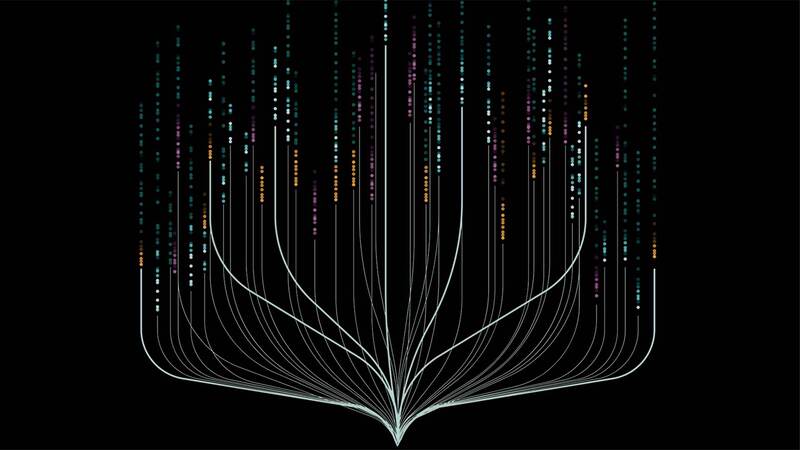You are viewing your 1 free article this month. Login to read more articles.
JON WALLACE: TOP FIVE BRITISH DYSTOPIAS
1. The Drowned World by JG Ballard
Famed for its anticipation of modern climate fears, Ballard’s debut imagines London as a ruin submerged by steaming lagoons, part of a world drowned by dramatic global warming. Melted ice caps have formed vast new rivers, bamboo groves, and silt banks, turning the human world into a Paleozoic swamp. Giant iguanas, crocodiles and mosquitoes are the ascendant species, contemptible of the usurped human remnants that cling on in the ruins. Burning under a merciless sun, the enervating landscape resurrects shared ancient memories among the human characters, becoming a place where the physical and the psychic meld. This London is a set for Ballard to explore how easily man slips into barbarism, how fragile his dominion of the planet is, and how just how brief it will prove in cosmic terms. Ballard’s narrative voice always has a hypnotic effect on me: I read this in a day, which is rare for me.
2. The War of the Worlds by HG Wells
Wells’ Britain is an anthill kicked over by the invasion of giant, Martian tripods. It’s another novel that seems spookily prescient: visions of cold, methodical extermination predict the worst horrors of the Second World War. To me it’s also prophetic of modern technological cruelty, with cold, detached killing machines sewing mayhem and destruction from invulnerable heights. It’s a novel with a powerfully evolved sensibility: man, for all his military might and sense of destiny, is shown to be subject to and protected by nature. I first read Wells in my early teens, and reading this again last year was a delight: the pacing of the story is damn near perfect, and I love the behaviour of the characters, who are driven by animal senses of fear and survival: the main character is at turns irrational, homicidal and self-pitying. I find that infinitely more convincing than common alien invasion narratives about protective fathers and patriotic soldiers.
3. The Adjacent by Christopher Priest
"IRGB" - I had a lot of fun asking friends to guess what that stood for. Priest’s novel spans various realities, but for me was most interesting in its depiction of a shabby, rain-swept Britain, barely holding together under forbidding Islamic rule. Priest’s Britain is a battered, tree-less floodplain, where terrorists use a mysterious super weapon at random, creating a climate of cloying anxiety: the characters traverse the country in the hold of an armoured car, exchanging notes and fleeting glances. I enjoyed this book a lot. Priest’s Britain realises a number of creeping modern fears, but refrains from drawing the kind of easy, hysterical conclusions that characterise modern political discourse. Life goes on in the IRGB. Politics and religion are ephemeral. Across the book’s many realities, only love endures. A touching and melancholy read. Give it a go.
4. The Day of the Triffids by John Wyndham
Wyndham’s famous tale has one of the best beginnings ever: the much-imitated set-up of the hero awaking in hospital to an eerily silent, transformed world. Wyndham’s protagonist finds London populated by staggering figures, blinded and helpless after staring at mysterious green lights in the night sky. The description of a city stilled by the loss of humanity’s dominant sense is really gripping - more than anything an eerie soundscape of shuffling feet, of sudden, despairing shrieks, and of drunken song. It’s another work that echoes some modern concerns: the triffids - a kind of sentient, carnivorous GM crop - are believed to be a biological weapon unleashed on the world by mistake. A world stalked by declining food sources allows the lethal plants to be intensively and widely farmed, with horrific results for the blind populace. It’s a curious read in many ways, highly entertaining yet marked by some oddly jarring interludes – particularly the polygamy stuff! Rip-roaring, humorous, and packed with great ideas.
5. Brazil (film) directed by Terry Gilliam, screenplay by Tom Stoppard
I had to include this as it remains my favourite depiction of a British dystopia – which I guess is natural from a lifelong Orwell and Monty Python fan. Gilliam’s future Britain depicts a 1984 Orwellian tyranny, but characterised by discomfort, bureaucracy and a kind of vicious ineptitude. For me the film is ramshackle and overlong, but touched by genius. Famed for its images of a suffocating bureaucracy, I find it most affecting due to the director’s inventive trick of making curious British eccentricities into menacing manifestations of an all-pervasive, oppressive regime: Gilliam has to only put the slightest twist on the cramped spaces of British infrastructure (tiny flats, poor plumbing and rubbish cars) to make the city seem determined to crush its populace. He doesn’t need to change a word of British establishment speak to make it sinister: like the dark comedy of the minister who puts terrorism down to “bad sportsmanship”. Inspired, and the most British of all British dystopias. Essential viewing.















